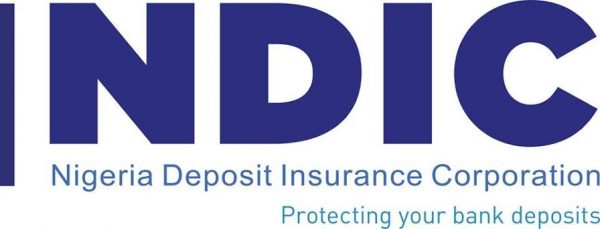NDIC Reiterates Commitment To Financial Stability

Managing Director, Nigeria Deposit Insurance Corporation (NDIC), Mr Bello Hassan, has said the corporation would continue to monitor the banking sector to address challenges it might be facing.
Hassan said this at a retreat for members of the Senate Committee on Banking, Insurance and other Financial Institutions with the NDIC, at Eko Hotel, on Saturday in Lagos.
The News Agency of Nigeria (NAN) reports that the retreat had “Deposit Insurance In Nigeria-Re-Strategising for Tomorrow,” as theme.
Hassan, represented by the Executive Director (Operations) NDIC, Mustapha Ibrahim, said effective risk based management remained central to safe and sound banking system.
“The NDIC and the Central Bank of Nigeria have a very robust supervisory framework under the risk based supervisory format the risk based approach is actually proactive.
“For the most part, we try to anticipate all these risks – Macro, micro, domestically and globally – to address them continuously.
“So, it is so dynamic that we also are constantly on a real time basis, monitoring the industry continuously and fine-tuning our supervisory tools, both onsite and offsite, to mitigate some of the challenges the banks may be facing,” said Hassan.
He added that he was happy that the Nigerian banking industry was at the moment quite resilient to most of these challenges, particularly, external shocks which the Corporation could not do anything about.
“We have tried to immunise the system to withstand shocks that may be impacting on the economy and the financial system,” Hassan said.
The Chairman, Senate Committee on Baking, Insurance and other Financial Institutions, Senator Uba Sani, said the retreat demonstrated the progress made in forging sustainable and workable relationship in the overall interest of the nation.
“The National Assembly and NDIC are key institutions critical to the growth and development of the Nigerian economy.
“While we provide the legal and institutional frameworks, NDIC carries out its regulatory or supervisory responsibilities in order to safeguard the banking sector.
“Engagement of this nature gives us the platform to deeply look into our activities and responsibilities and also examine how far we have gone in carrying out our mandate as required.
“It helps in injecting fresh ideas into our operations which will materialise into an improved, effective and efficient service delivery to Nigerians,” he said.
Sani, represented by Sen. Olubunmi Adetunbi, believed that the outcome would help in strengthening the financial and banking sectors, and in particular the supervisory and regulatory role of the corporation.





Leave a Reply